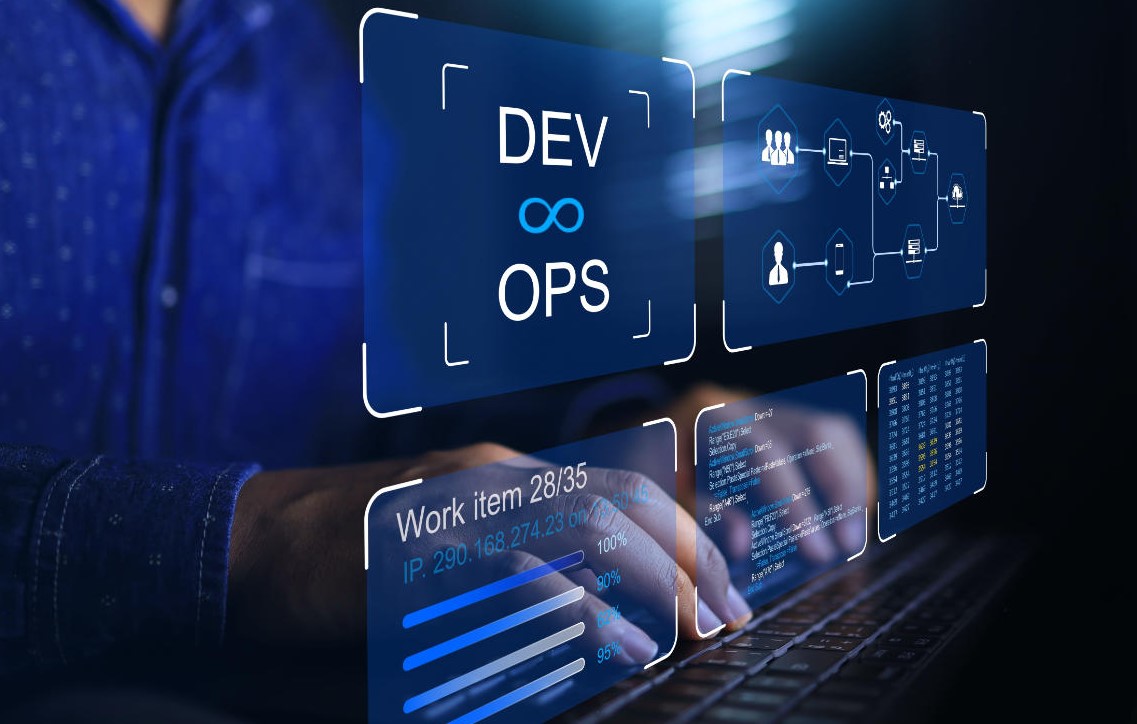As organizations increasingly embrace DevOps practices, the demand for skilled DevOps engineers has skyrocketed. Intensive training programs have gained popularity to meet this demand. This article explores the concept of a DevOps Engineer Bootcamp and how it can propel aspiring professionals into becoming DevOps experts.
Curriculum Overview
A typical DevOps Engineer Bootcamp curriculum is carefully crafted to cover various topics and technologies. Here are some key areas that are often included:
Version Control and Collaboration Tools
- Familiarizing participants with popular version control systems like Git.
- Introducing collaboration platforms such as GitHub or Bitbucket for efficient team workflows.
Continuous Integration and Continuous Delivery
- Implementing automated build processes using tools like Jenkins or CircleCI.
- Orchestrating the deployment pipeline and integrating automated testing.
- Understanding the importance of continuous monitoring and feedback loops.
Infrastructure as Code (IaC)
- Introduction to Infrastructure as Code concepts and tools like Terraform or CloudFormation.
- Creating infrastructure templates for provisioning and managing resources.
- Enabling reproducibility, scalability, and consistency in infrastructure management.
Configuration Management
- Utilizing configuration management tools like Ansible, Puppet, or Chef.
- Automating system configuration and ensuring consistency across environments.
- Managing application configurations dynamically and securely.
Benefits of a DevOps Engineer Bootcamp
A bootcamp helps a DevOps engineer in a myriad of ways. Here are ty
Practical Hands-on Experience
DevOps Engineer Bootcamps prioritize practical learning through hands-on exercises, real-world projects, and simulations. Participants gain experience building and managing complex software delivery pipelines, deploying applications to the cloud, automating infrastructure, and more.
This practical exposure enhances their ability to tackle real-world challenges and accelerates their learning process.
Industry-Relevant Skills
DevOps Bootcamps focus on teaching the latest tools, technologies, and best practices prevalent in the industry. By keeping up with the latest trends, participants acquire in-demand skills that make them highly sought-after by organizations looking to implement DevOps.
Networking Opportunities
DevOps Bootcamps often provide a collaborative learning environment where participants can network and collaborate with like-minded professionals, industry experts, and mentors. These connections can be invaluable for career growth and future job prospects.
Fast-Track Career Growth
A DevOps Engineer Bootcamp certification can significantly boost career prospects, open doors to new opportunities, and enable professionals to take on more challenging and rewarding organizational roles.
Who should take the DevOps Engineer Training?
DevOps Engineer training benefits a wide range of individuals interested in pursuing a career in DevOps or enhancing their existing skills. Here are some key groups of professionals who can greatly benefit from DevOps Engineer training:
System Administrators
System administrators or IT professionals responsible for managing infrastructure and maintaining applications can benefit from DevOps Engineer training. It equips them with the skills to automate infrastructure provisioning, streamline deployment processes, and implement configuration management. This training helps system administrators enhance their knowledge and become instrumental in adopting DevOps practices within their organizations.
Operations and Release Managers
Software deployments are made simple and effective by operations and release managers. They may automate deployment pipelines, enhance release management procedures, and set up continuous integration and delivery methods with the help of DevOps Engineer training. Operations managers are given more freedom to reorganize their teams, minimize mistakes, and accelerate deployments.
Quality Assurance (QA) Engineers
The main goal of QA engineers is to guarantee the quality of software releases. QA engineers can better comprehend the concepts of continuous integration and testing thanks to DevOps Engineer training. They pick up monitoring app performance, creating feedback loops, and integrating automated testing into the pipeline for deployment. With the help of this course, QA engineers may contribute to the DevOps culture and streamline communication between the development and testing teams.
IT Project Managers
DevOps Engineer training might be useful for IT administrators who oversee software development initiatives. It gives them a deeper understanding of the technical components of DevOps, enabling them to successfully plan and manage projects while keeping DevOps principles in mind. They develop knowledge about resource provisioning, teamwork applications, and deployment techniques, allowing them to match project goals with DevOps objectives.
IT Professionals Seeking Career Transition
DevOps Engineer training also appeals to IT professionals seeking a career transition into the field of DevOps. Whether from a development, operations, or testing background, this training equips them with the necessary skills and knowledge to enter the DevOps domain. It provides a structured learning path to acquire the expertise required for DevOps roles and increases employability in organizations adopting DevOps practices.
DevOps Engineer training serves people who wish to improve their technical abilities, adopt DevOps techniques, and help enterprises successfully implement DevOps methodologies.
🔥 DevOps Bootcamp 2023 | DevOps Bootcamp for Beginners | Learn DevOps in 10 Hours | Simplilearn
Prerequisites for taking a DevOps Engineer Training
Knowledge of Operating Systems and Networking
It’s beneficial to have a basic understanding of networking theory and operating system (like Linux or Windows) fundamentals. Infrastructure management, server configuration, and network connectivity are all part of DevOps. It is easier to participate effectively in training activities if you are familiar with command-line interfaces and fundamental networking protocols.
Knowledge of Agile and Scrum Methodologies
DevOps often integrates with Agile and Scrum methodologies. Understanding the fundamental principles of Agile software development and Scrum project management can help participants comprehend DevOps’s collaborative nature. Prior exposure to Agile practices and working in Agile teams is advantageous.
Basic Infrastructure Understanding
It helps to have a basic understanding of the networks, servers, and databases that make up the infrastructure. Understanding infrastructure management in a DevOps setting can be facilitated by familiarity with ideas like load balancing, firewalls, and DNS. Terms like IP addresses, ports, and protocols should be known to participants.
Conclusion
The DevOps Engineer Bootcamp is a thorough training program that equips individuals with the skills and knowledge necessary to be successful in the DevOps industry. These boot camps give aspiring professionals a comprehensive practical experience, enabling them to master DevOps swiftly.
On average, DevOps engineers make $103,571 annually. Given the increasing demand for DevOps engineers, enrolling in a DevOps Engineer Bootcamp can be a game-changer for anyone looking to launch a rewarding and successful career in this dynamic sector.




